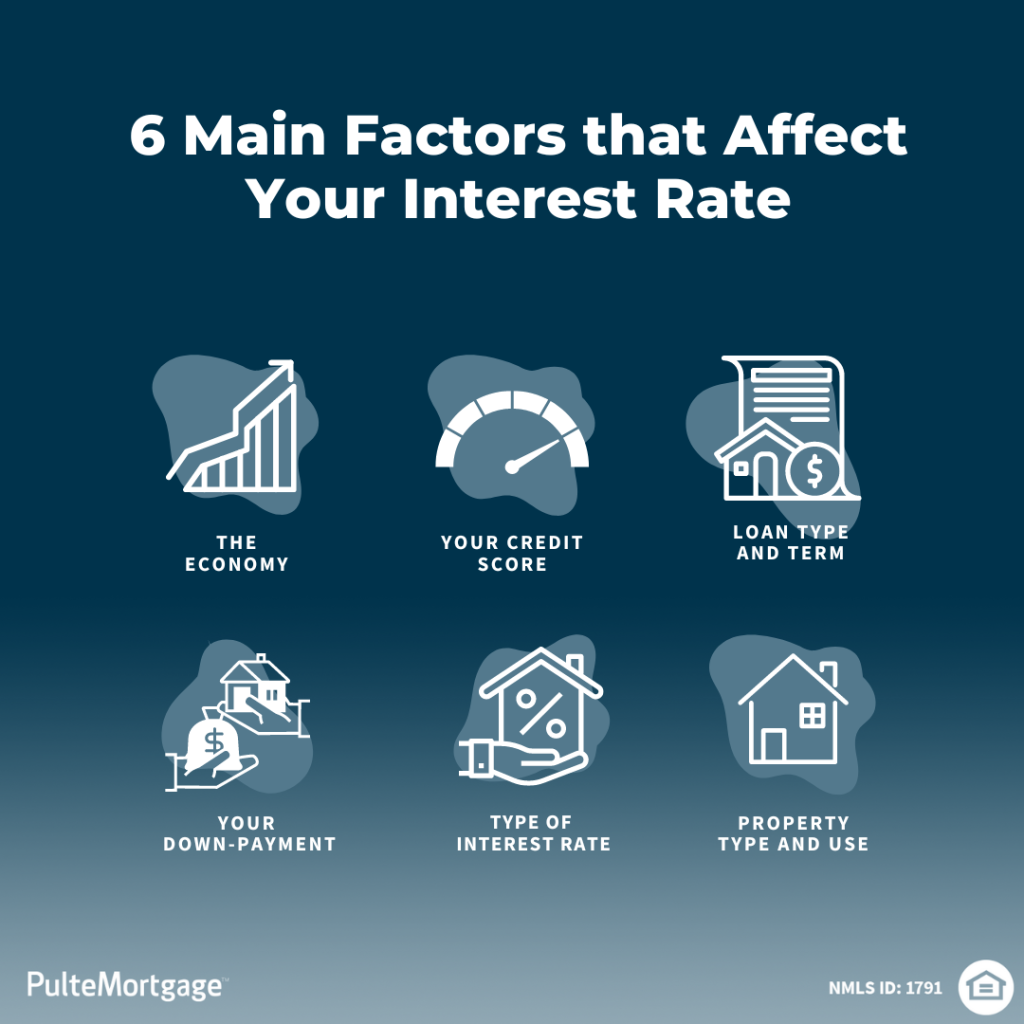Knowing what factors may impact your mortgage interest rate can help you better prepare for the homebuying process and get the best rate you can. While some of these factors are outside your control, there are a few variables that are. Here we list six of the main factors that can affect your mortgage rate!
1. The Economy
There are many external factors that impact national average mortgage rates such as inflation, economic growth, the housing market, and Federal Reserve policies. These factors are out of your control, but they are important to be aware of nonetheless!
2. Credit Score
Lenders use your credit score to predict how reliable you are when it comes to borrowing funds. In general, homebuyers with higher credit scores receive lower interest rates. Before you start your homebuying journey, check your credit report and try to improve your score as much as you can.
3. Loan Type & Term
There are several types of loans – Conventional, FHA and VA, to name a few – and each has its own unique eligibility requirements. Your interest rate can vary depending on which loan type you choose, so it’s best to discuss your options with your Loan Consultant. When it comes to your loan term, the most common options are 30- or 15-year terms. In general, a shorter term can lead to lower interest rates and overall costs. If you don’t mind taking on a higher monthly payment, a shorter term can save you money in the long run!

4. Interest Rate Type
There are two types of mortgage interest rates, fixed and adjustable. A fixed interest rate won’t change over time, while an adjustable rate fluctuates based on the market after a set period of time.
5. Loan-to-Value
A larger down-payment will lower your Loan-to-Value (LTV) ratio, which can lead to a lower interest rate. The more money you put down, the less you will have to borrow!
6. Home Type & Location
Your interest rate will also be dependent on your home type, location and the intended use of the property. For example, a condo purchased as an investment property may have a higher interest rate than an owner-occupied, single-family dwelling.
While you can often get an estimate, it’s important to remember that your mortgage rate is unique to you and your financial health. To know what you really qualify for, reach out to your Pulte Mortgage Loan Consultant today!





